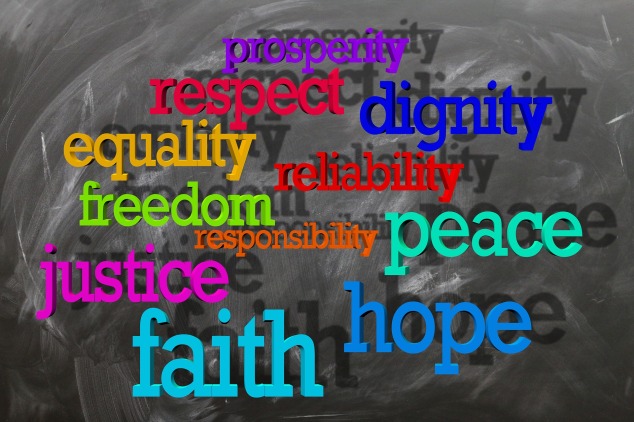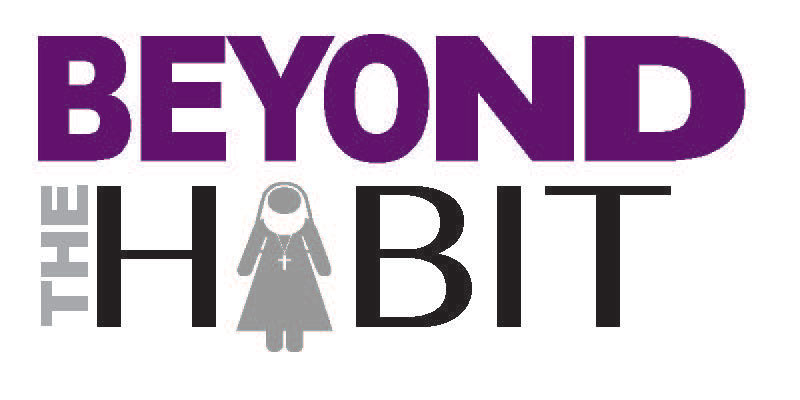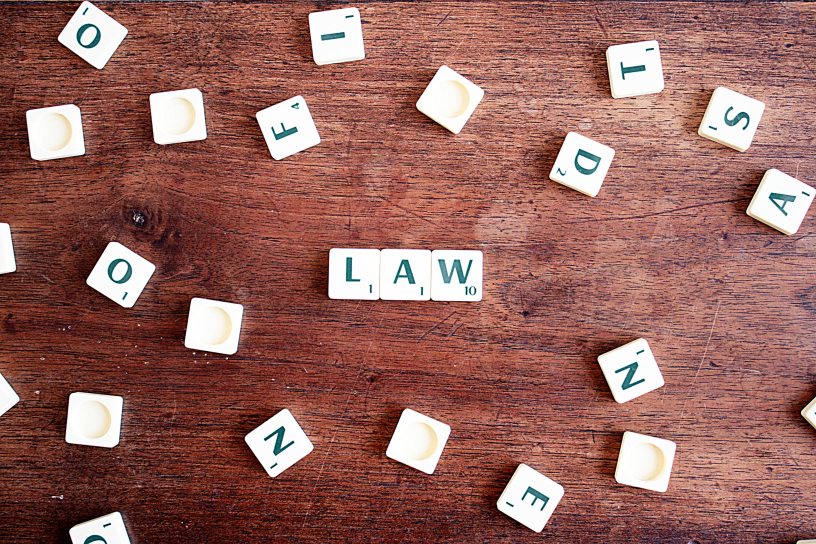By Sister Sallie Latkovich
In the mid 1980’s, the founding Congregation of Cleveland entered into a serious discernment about declaring public sanctuary for refugees from El Salvador. We created an educational video for all of the members of the Congregation, and then came together to hear from Immigration and Customs Enforcement (ICE) and from the local FBI. We knew that to transport and harbor those without documentation was against civil law.
 At that meeting, one of the Sisters who had been an educator her whole life spoke about having taught students to be law abiding; she just couldn’t agree to “break the law.” In response, I questioned whether God’s law didn’t take priority. It was a conundrum, and we face the same conundrum when we seek to exercise our moral authority in other matters. I’d like to pose the following question to each of you: What do you consider to be your moral authority and responsibility?
At that meeting, one of the Sisters who had been an educator her whole life spoke about having taught students to be law abiding; she just couldn’t agree to “break the law.” In response, I questioned whether God’s law didn’t take priority. It was a conundrum, and we face the same conundrum when we seek to exercise our moral authority in other matters. I’d like to pose the following question to each of you: What do you consider to be your moral authority and responsibility? For some, one’s moral responsibility is simply keeping the civil law. The assumption is that civil law is right and just. Sadly, that is not always the case. The group of people who are most concerned with keeping the civil law might also be concerned with the consequences of breaking it—having to pay a fine or to spend time in jail.
For some, one’s moral responsibility is simply keeping the civil law. The assumption is that civil law is right and just. Sadly, that is not always the case. The group of people who are most concerned with keeping the civil law might also be concerned with the consequences of breaking it—having to pay a fine or to spend time in jail. Those who believe that Church teaching is always right and just seek to keep canon law as a way of being loyal to God. And yet, the Church is a human institution, and has been wrong in its teaching in a number of cases: agreeing to slavery, only recently speaking out about capital punishment, the judgment and rejection of LGBTQ men and women.
Those who believe that Church teaching is always right and just seek to keep canon law as a way of being loyal to God. And yet, the Church is a human institution, and has been wrong in its teaching in a number of cases: agreeing to slavery, only recently speaking out about capital punishment, the judgment and rejection of LGBTQ men and women. Then there is God’s law as it is revealed in the Gospels. Jesus taught us to love, only love. This includes feeding the hungry, giving drink to the thirsty, visiting the sick and those in prison, welcoming the stranger, burying the dead. He taught and modeled non-violence as stones were dropped and swords put away. He taught forgiveness, seventy times seven times. If these laws of the Gospel are not being followed, we are called to, and we simply must, exercise our moral authority: to speak out, to stand up, to shine a light into the night of injustice and immorality.
Then there is God’s law as it is revealed in the Gospels. Jesus taught us to love, only love. This includes feeding the hungry, giving drink to the thirsty, visiting the sick and those in prison, welcoming the stranger, burying the dead. He taught and modeled non-violence as stones were dropped and swords put away. He taught forgiveness, seventy times seven times. If these laws of the Gospel are not being followed, we are called to, and we simply must, exercise our moral authority: to speak out, to stand up, to shine a light into the night of injustice and immorality. We exercise moral authority in three ways: in educating others regarding the Gospel message; in doing direct service to those treated unjustly or who are in need; and in changing systems that sustain immoral treatment of our brothers and sisters, the dear neighbor. Living the “status quo,” to simply keep the peace, does not indeed keep peace, and is often irresponsible. To act on our moral authority, let us always and everywhere choose to follow God’s law of love, peace, and justice.
We exercise moral authority in three ways: in educating others regarding the Gospel message; in doing direct service to those treated unjustly or who are in need; and in changing systems that sustain immoral treatment of our brothers and sisters, the dear neighbor. Living the “status quo,” to simply keep the peace, does not indeed keep peace, and is often irresponsible. To act on our moral authority, let us always and everywhere choose to follow God’s law of love, peace, and justice.
About the Author
 After nine years at Catholic Theological Union in Chicago, Sister Sallie Latkovich was elected to and currently serves on the Leadership Team of the Congregation of St. Joseph.
After nine years at Catholic Theological Union in Chicago, Sister Sallie Latkovich was elected to and currently serves on the Leadership Team of the Congregation of St. Joseph.


Simply and beautifully explained. Thanks.
LikeLike
Thank you, Sister Doris!
LikeLike
Thanks for these considerations.
LikeLike
Thank you for reading, Marge!
LikeLike
Well done sally. Thanks
LikeLike
Thank you, Betsy!
LikeLike
As usual, good job, Sallie. You told it how it is and how we follow the teachings of the Gospel.
LikeLike
Thank you, Joellen!
LikeLike
Thanks for this timely message, Sallie!
LikeLike
Thanks Jeanne!
LikeLike
Thank you, Sallie, for exercising that of which you speak by sharing leadership in our Sacred Work! Janice Miller
LikeLike
Thank you, Janice!
LikeLike
Thanks for your beautiful and meaningful message, Sallie. It couldn’t be more timely as we welcome our dear brothers and sisters from the border, etc.
LikeLike
Thank you, Brigetta.
LikeLike
What a wonderful articulation of our commitment to use our moral authority!
LikeLike
Thanks, Janet!
LikeLike
I like this!
LikeLike
Thanks, Carol!
LikeLike